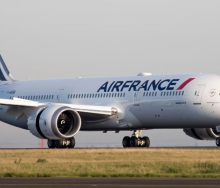New York City’s migrant policy and its clampdown on short-term rentals have combined to create a supply crunch in the city’s hotels, which is driving hotel rates to record prices.
In the first three months of 2024, when hotel rates in New York are typically low, prices for hotel stays were 6,7% higher than the same period last year.
The New York government said a spike in tourism is what’s behind the rising hotel rates.
“Amid the limited space and availability of lodging, demand for hotel rooms by visitors has grown and benefited hotels where the average daily rate exceeded pre-pandemic levels in 2023,” said a report from the Office of the New York State Comptroller
According to data by CoStar, a commercial real estate data analyst, while the average daily rate for a hotel was $216,38 (R4 028) in 2023, it rose to $230,79 (R4 296) in 2024, reports the New York Times. The average daily rate hit a record $301,61 (R5 615) in 2023, up from $277,92 (R5 174) in 2022.
One reason behind the increase is the city’s new Local Law 18 against short-term rentals. The law came into effect in September 2023, and it requires hosts of short-term rental properties to obtain a registration number from the mayor’s office. Hosts are also required to be present during guests’ stays, or face a fine of $5 000 (R93 400).
AirDNA, a data collection company specialising in short-term rental listings, says this has reduced the number of Airbnb listings in New York by 83%, from 22 247 apartments in August 2023 to 3 705 in March 2024.
Airbnb listings and short-term rentals made up 10% of the accommodation landscape in New York prior to the crackdown. Jamie Lane, Chief Economist at AirDNA, said: “The hotel lobby was pushing for this law to happen, so they could have higher rates and increase the profitability of their properties.”
The new law kicked in when the hotel industry was already facing a supply crunch due to the many properties that have been designated by the city to house migrants since 2022. 135 of the city’s 680 hotels entered the Sanctuary Hotel Program, and to date, none of these properties have been converted back into hotels.
22 of these properties are in the tourist region of Midtown Manhattan, near Times Square, the Empire State Building and the theatre district. Data from CoStar reveals that the migrant policy alone has caused the loss of 16 532 hotel rooms.
This disparity between supply and demand of New York’s hotel rooms does not show signs of shifting, as new zoning rules and special permits are making it more expensive to own and operate hotels in the area, leading to a decrease in construction.















